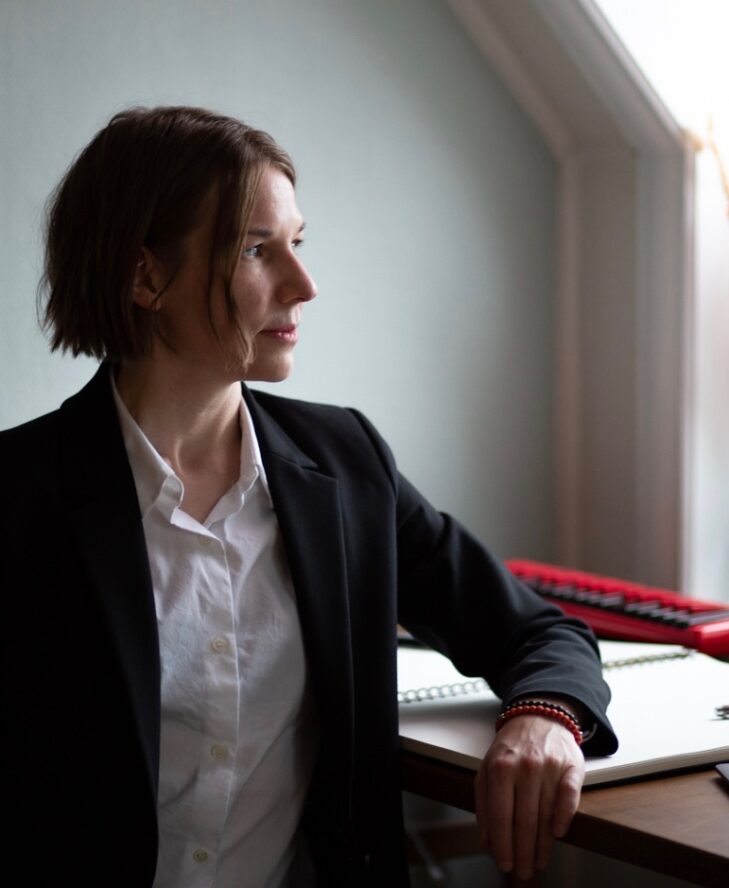
Interview med Rebecka Ahvenniemi
What is the story behind your new piece “Hymn To a Tree”?
R: While the title itself might seem romantic, this work doesn’t play along with the codes of romanticised beauty. There’s a singing voice, heard through speakers as fixed sound files. The voice might appear as archaic: it performs long vowels and bounces from chest voice to head voice. I have searched for concreteness and nakedness of musical expression, combined with a questioning of what is “natural”.
Some of the material is based on my previous composition “Ode to a Tree” for solo clarinet and electronics. It was first performed in July 2016 at the Mostly Mozart festival by Joshua Rubin in front of the Lincoln Center in the area surrounded by large trees.
This, new work, is for solo clarinet, chamber orchestra and electronics as fixed sound files. I have, perhaps with some humour and playfulness, reflected the categories “culture” and “nature”, and how they are present in Western thinking. Our concept of “nature”, I consider being “cultured”, too.
Some of your recent works “Requiem for Mimì and Other Women Who Died in Opera” and “Sonate i Pippi-form” seem to bring completely new perspectives to classical music and opera by bringing themes or putting well-known figures into new contexts. How would you describe this approach to being a composer?
R: I consider musical composition, to some extent, an interpretative activity. One actively engages with the cultural codes embedded in materials, methods and ways of thinking. The work “Requiem for Mimì and Other Women Who Died in Opera”, for example, raises the question of why women characters have been idealised and then killed off in operas. The same phenomena may also be present in some movies, for example those of Alfred Hitchcock. Within classical opera, the stories, characters and feelings are often presented as something universally true. The specific social backgrounds of the composers and the libretto writers, and the perspectives they reflect, are not necessarily taken into consideration.
In this way – and in much more subtle ways – I think compositional activity can have a negotiating function: it has the potential of drawing lines between different eras, and to discuss elements present in today’s world.
You’re a composer and a philosopher. What would happen if you have to compose without being a philosopher or to be a philosopher without composing?
R: Within both composition and philosophy my approach is similar: attempting to slow down the speed of thinking and processing. I continuously carry the impression that the world is moving too fast, and not always in a qualitatively well-thought direction. Since I don’t want to put even more “newness” and “crazy” out there, my role has become to absorb, digest and process, carefully considering different angles. This is not always a popular approach; it is not a good marketing strategy to engage in this type of slow processing.
Photo: Monika Kolstad